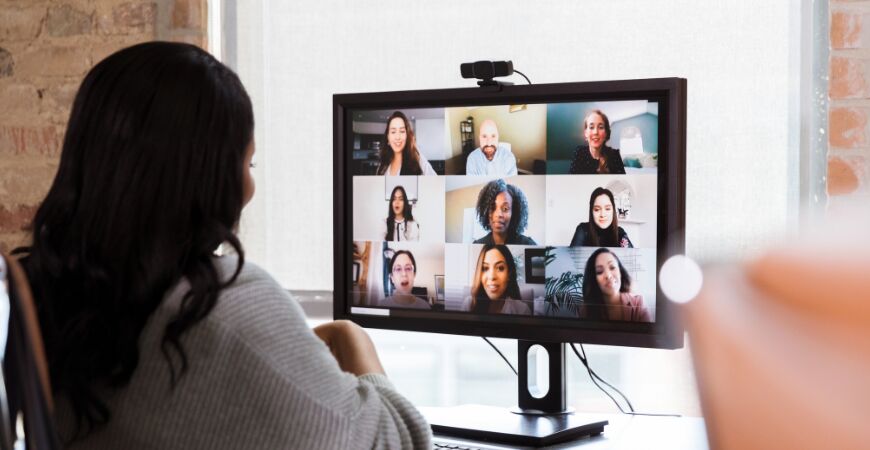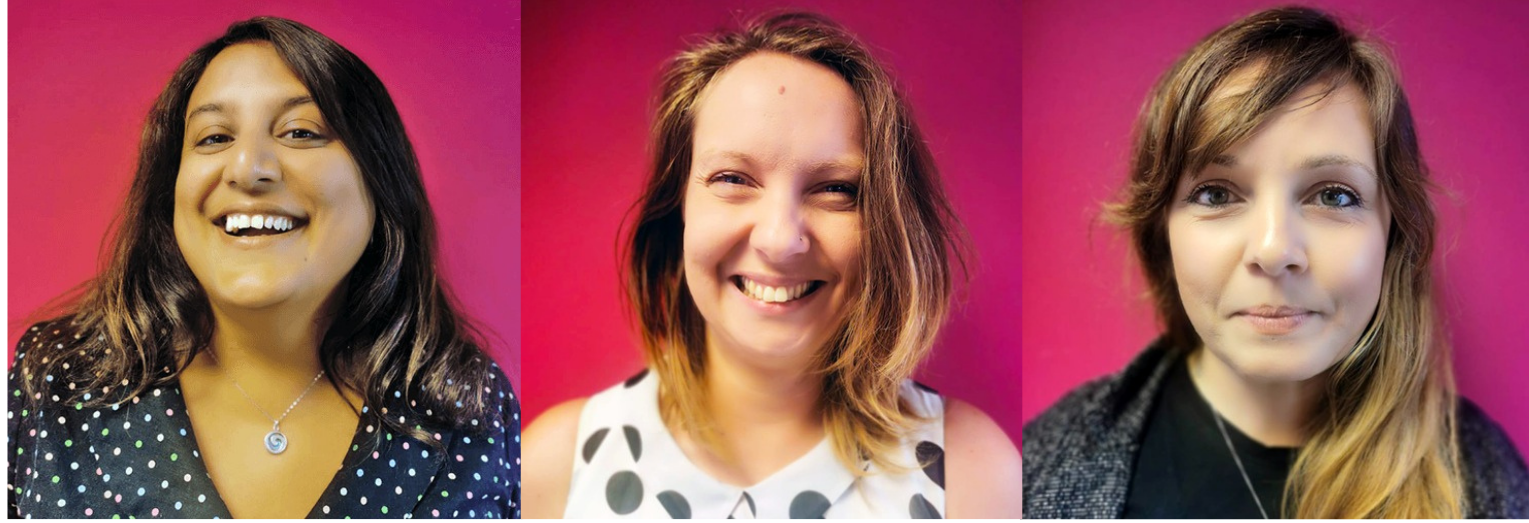

Tue 23 / 02 / 21
Are your meetings meeting everyone?
Mo Kanjilal is a Co-Creator at diversity and inclusion consultancy Watch This Sp_ce. She's shared some thoughts and ideas on making sure your meetings are inclusive and meeting the needs of your attendees.
By Mo Kanjilal of Watch This Sp_ce
Meeting needs: are your meetings including everyone?
Working life for a lot of people means lots and lots of meetings. This can be small meetings which don’t take too long, or big meetings, with lots of people and an endless meeting agenda.
I have often wondered whether we have lost sight of what work it is we set out to do? Did we imagine spending so much time in meetings when we imagined our futures? And are our roles possible to do with the number of meetings we have? And often throughout my career when I have sat in those meetings, I wonder whether we needed to have a meeting at all?
Meetings about meetings
So why do we hold or attend meetings? It’s usually to communicate something to people, or to ask people for ideas, or to make decisions about something.
Meetings can be to check progress on projects, to introduce people to each other, or, let’s be honest, sometimes they are for people to feel like they are busy doing something. I once worked in senior management at a corporation on a big, sprawling site. I had so many meetings all booked back-to-back that I often wondered if I needed roller skates to get to meetings on time! Then as I had spent all day in those meetings, I had to work in the evenings to do my actual job. This is not an unusual story.
Before lockdown, many of us already felt we had too many meetings to attend. Since working from home over the last year, a lot of people I speak to (in meetings!) say they are spending most of their day on zoom and finding that they are shattered in the evenings. Is it the case that meetings are part of a work culture that doesn’t suit everyone’s lives today? Do we need to reimagine our culture of meetings? And are we meeting everyone’s needs with all these meetings?
Meetings facts
To get a picture of what people think about meetings, I spent a bit of time looking into it. From research done by Otter.ai:
- 11 million meetings are held every day
- 15% of an organisation’s time is spent in meetings
- 67% of employees complain that spending time in meetings stops them being productive
And we’re spending more time in meetings since we transferred to working from home. Just look at the increase in the use of Zoom, who have 300 million daily meeting participants using their platform.
Then if we look at the stats around what people do in meetings:
- 69% of employees check their email frequently during a meeting
- 95% of meeting attendees lose focus and miss parts of the meeting
- People lose an average of 31 hours every month or 4 working days to ineffective meetings
So that’s a lot of time spent in meetings where people are not concentrating on the meeting and they are losing time they could be doing other things.
Inclusive Meetings
Now if we think about what meetings are actually like to attend, do we think they are including everyone? Some people need to see information and have time to absorb and analyse before they can give their thoughts and opinions. Others need to think about it afterwards and reflect. And there are others who are happy to perform in the stage of a meeting and dominate the conversation.
Women are interrupted in meetings 50% of the time, usually by men. 38% of women say that someone else has taken credit for their work. Meetings are a breeding ground for discrimination if they are not handled well. Did you see the video of Jackie Weaver and that parish council meeting? There are many, many people who can talk about experiencing racism, bullying, being made to feel excluded and uncomfortable in meetings.
The thing is, we do need meetings to communicate with people. And a lot of meetings have been the only social interaction we’ve had some days during lockdown. To make those meetings effective and inclusive it takes some thought, planning and preparation.
Here’s some thoughts and ideas to make your meetings inclusive:
- Do you really need a meeting? That’s the first thing to think about
- Who will be attending the meeting? And why?
- Do they have any requirements to help them feel included, for example; accessibility, information before the meeting, sign language, content requirements?
- What information are you going to provide in advance to help people prepare?
- How will you run the meeting; will you use breakout groups? Or present to people?
- How will you present information in the meeting?
- How are you going to ensure everyone gets to have their say and is respected?
- How will you deal with any unacceptable behaviour?
- And how will you follow up from the meeting with information?
This list is just a start of things to think about. There are many different ways to ensure collaboration, inclusion and keeping people engaged. We have some more ideas on our website about running inclusive meetings and inclusive online meetings.
Organised in the right way, meetings are a brilliant way to connect with people, discuss ideas and share information. It’s about thinking and planning your meetings to ensure they meet everyone’s needs.

Mo Kanjilal is one of the three Co-Creators of Watch This Sp_ce. She is an award-winning Director with experience in large corporations, smaller companies and as a consultant. She is a freelance writer, conference speaker and mentor to young people for charities.

Watch This Sp_ce is a diversity and inclusion consultancy. We help people reimagine everything to include everyone. We provide training on inclusive ways of working, consultancy to look at how you work and help you increase inclusion, and content creation to help you to reach everyone when you communicate. Email us at hello@watchthisspace.uk, browse our training and resources on our website and listen to the Reimagination At Work podcast for ideas, inspiration and guidance.
Join their IWD: Shattering Sterotypes event on 11 March. Find out more and sign up here.
If you want to contribute to the Chamber blog, contact us on hannah@brightonchamber.co.uk


